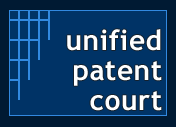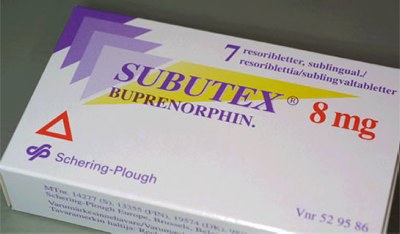- The right to a translation of the UPC Statement of claim -
 Bijdrage ingezonden door Wouter Pors, Bird & Bird. Article 49 of the Agreement on a Unified Patent Court (UPC Agreement) deals with the language regime at the Court of First Instance. At local and regional divisions, the available languages will basically be languages of the countries that host such a division, with an option to add any of the official languages of the European Patent Office, which means English, French or German. At the central division, the language of the proceedings shall be the language in which the patent was granted.
Bijdrage ingezonden door Wouter Pors, Bird & Bird. Article 49 of the Agreement on a Unified Patent Court (UPC Agreement) deals with the language regime at the Court of First Instance. At local and regional divisions, the available languages will basically be languages of the countries that host such a division, with an option to add any of the official languages of the European Patent Office, which means English, French or German. At the central division, the language of the proceedings shall be the language in which the patent was granted.
Rule 14 of the current 16th draft Rules of Procedure further provides that the language of the Statement of claim shall be the language of the proceedings. The Statement of claim is the document by which litigation before the UPC is started. The claimant can pick his choice of the languages allowed by the division. Rule 14 sets some further alternatives for detailed provisions on this language of the Statement of claim in case a division allows for two or more languages, with an aim of protecting the right of the defendant, especially in case of a purely local infringement within the territory of that division. The Preparatory Commission will decide, probably later this year, whether it wants to include any of these alternatives.
Basically the system means that a defendant who is based within the Contracting Member States of the UPC can be faced with a Statement of claim in a language which is not his native language. This is a new phenomenon. Until now, litigation in first instance has always taken place before national courts of a Member State of the European Union. If a defendant from another Member State was summoned to appear in such court, he was entitled to a translation of the writ of summons into a language that he could understand under Article 8 of the Regulation (EC) No 1393/2007 on the service in the Member States of judicial and extrajudicial documents in civil or commercial matters (service of documents), the Service Regulation. Of course, the language of the proceedings before such a national court would not change, but at least the defendant would get a copy of the writ of summons in a language that he would understand. This rule also applies to EU defendants who are summoned to appear before the UPC, but are not based in one of the Contracting Member States of the UPC, as confirmed in Rule 274.1(a)(i) of the Rules of Procedure. In that case, the UPC does not have a registry or sub-registry in the home country of the defendant, which means that the Statement of claim has to be “transmitted” from a UPC country (in that case probably Luxembourg, the basis of the Registry), to the home country of the defendant; this means the Service Regulation fully applies. For those countries, the UPC is a foreign court. Currently those states are Croatia, Poland and Spain, although Croatia is expected to join the UPC Agreement soon.
However, for a citizen of a Contracting Member State, the UPC is not a foreign court. Article 1 of the UPC Agreement provides:
“The Unified Patent Court shall be a court common to the Contracting Member States and thus subject to the same obligations under Union law as any national court of the Contracting Member States.”
Consideration 11 of the current version of the Regulation (EU) No 1215/2012 of the European Parliament and of the Council of 12 December 2012 on jurisdiction and the recognition and enforcement of judgments in civil and commercial matters (Brussels I Regulation (recast)), already refers to such courts, without specifically mentioning the UPC:
“For the purposes of this Regulation, courts or tribunals of the Member States should include courts or tribunals common to several Member States, such as the Benelux Court of Justice when it exercises jurisdiction on matters falling within the scope of this Regulation. Therefore, judgments given by such courts should be recognised and enforced in accordance with this Regulation.”
On 26 July 2013, the European Commission published a draft amendment to the Brussels I Regulation (document 2013/0268 (COD)), which includes a new Article 71a(1):
“For the purposes of this Regulation, a court common to several Member States (a "common court") shall be a court of a Member State when, pursuing to the agreement establishing it, it exercises jurisdiction in civil and commercial matters within the meaning of this Regulation.”
And Article 71a(2)(a):
“For the purposes of this Regulation, the following shall each be a common court: (a) the Unified Patent Court established by the Agreement on a Unified Patent Court signed on 19 February 2013 (the "UPC Agreement") …”
The consequence of all of this is that the UPC shall be regarded as a court of that Member State in each Contracting Member State of the UPC Agreement. So, if a Hungarian defendant is sued in the Brussels local division of the UPC for an alleged infringement in Belgium, he is deemed to be sued in a Hungarian court (as well as in a Belgian court). This in fact makes sense, since a local division is not a separate court, but merely a division of a Unified Court that also covers Hungary (and Belgium). This was the way it was intended.
The introduction of amendment 2013/0268 (COD) confirms this:
“The Unified Patent Court will be a court common to certain Member States and will be subject to the same obligations under Union law as any national court. The Unified Patent Court will have exclusive competence, thus replacing national courts, for the matters governed by the UPC Agreement. The UPC Agreement regulates the internal distribution of competences between the different divisions of the Unified Patent Court and the enforcement of the judgments of the Unified Patent Court in the Contracting Member States.”
But if the UPC is to be regarded as a national court in each Contracting Member State, and if the UPC Agreement and its Rules of Procedure provide for a specific language of the Statement of claim which for all practical purposes may not be a language which the defendant understands, will that defendant still be entitled to a translation of that Statement of claim?
The UPC Agreement only provides for that under Article 49(5) – and even then at the discretion of the Court – if the language of the proceedings is changed from a language of the division at hand to the language in which the patent was granted, and under Article 51(3) for litigation before the Central Division against defendants based outside the Contracting Member States or where the Contracting Member State involved does not host a local division or participate in a regional division. The more common situation of a defendant domiciled in one Contracting Member State who is sued before a division in another Contracting Member State, which does not have his mother tongue as an available language, is not dealt with in the UPC Agreement. And of course such situation was not envisaged in the Service Regulation, which considerably predates the UPC Agreement.
The Service Regulation deals with the transmission of documents between Member States, as stated in recital (2):
“The proper functioning of the internal market entails the need to improve and expedite the transmission of judicial and extrajudicial documents in civil or commercial matters for service between the Member States.”
This is further defined in Article 1, which sets the scope of the Regulation
“This Regulation shall apply in civil and commercial matters where a judicial or extrajudicial document has to be transmitted from one Member State to another for service there. It shall not extend in particular to revenue, customs or administrative matters or to liability of the State for actions or omissions in the exercise of state authority (acta iure imperii).”
Article 8(1) provides:
“The receiving agency shall inform the addressee, using the standard form set out in Annex II, that he may refuse to accept the document to be served at the time of service or by returning the document to the receiving agency within one week if it is not written in, or accompanied by a translation into, either of the following languages:
(a) a language which the addressee understands;
or
(b) the official language of the Member State addressed or, if there are several official languages in that Member State, the official language or one of the official languages of the place where service is to be effected.”
In accordance with this, Article 5(1) provides:
“The applicant shall be advised by the transmitting agency to which he forwards the document for transmission that the addressee may refuse to accept it if it is not in one of the languages provided for in Article 8.”
The Regulation does not refer to courts or litigation in courts of another Member State; it simply refers to the transmission of documents from one Member State to another.
According to Rule 6.1(b) of the Rules of Procedure, the Statement of claim is served on the defendant by the Registry. The Registry is based in Luxembourg, see Article 10(1) and 9(5) of the UPC Agreement. So this might mean that in fact any Statement of claim is transmitted from Luxembourg to the Member State of the defendant, except if he happens to be based in Luxembourg. If this is seen as decisive, Articles 5 and 8 of the Service Regulation would apply and thus would guarantee that the defendant can require a translation of that Statement of claim. However, this seems to be a bit of an artificial construction. The domicile of the parties and maybe the location of the division addressed would be more logical decisive factors. The role of the Registry is quite limited and actually all the submissions of documents will happen online. In fact, Article 10(2) UPC Agreement provides that sub-registries shall be set up at all divisions of the Court of First Instance. Therefore, in practice it is more likely that the Statement of claim, which is submitted online by the claimant, is printed and served by the sub-registry in the Contracting Member State where the defendant is based. Submitting a Statement of claim is not done in a specific Member State; the claimant may even not be based in any Member State. Therefore, if this indeed will be the practice, the Statement of claim is not “transmitted from one Member State to another” in the traditional sense as meant in the Service Regulation.
Article 4(2) of the Service Regulation provides that transmission may be carried out by “any appropriate means”, provided that the content of the document received is true and faithful to that of the document forwarded and that all information in it is easily legible. However, recital 17 and Article 14 make it clear that the lawmakers did not have online files in mind, as a standard method of transmission is by postal service by registered letter. Actually, a predecessor of the Service Regulation is a 1999 proposal for a Directive. [Proposal for a Council Directive on the service in the Member States of judicial and extrajudicial documents in civil or commercial matters, 4-5-1999, COM(1999) 219 final] This proposal also stipulates that any means of transmission can be used and adds:
“Where technical innovations take place or where receiving agencies accept new means of transmission, this can be entered in the manual when it undergoes its annual updating.” [Proposal, p. 13.]
Although that would suggest otherwise, the Manual on the Service Regulation offers no solution either. It provides information per country, but no general instructions on the means of transmission. [For example for the Netherlands it provides “Bailiffs may receive documents by post. Receiving agencies for which a fax number or e-mail address is given in the list at point I of this manual may also receive documents by fax or email.”] So, none of the documents relating to the Service Regulation provides any indication that Articles 5 and 8 are intended to cover a situation where a Statement of claim is filed online, printed at the sub-registry in the country of domicile of the defendant and then served on him; such document cannot be said to have been “transmitted from one Member State to another”. If online litigation becomes more standard, this certainly calls for a revision of the Service Regulation.
For the UPC the issue has now been resolved in Rule 271(7) of the 16th draft of the Rules of Procedure, which provides:
“Where the defendant would be entitled to refuse service if Article 8 of Regulation (EC) No 1393/2007 on the service in the Member States of judicial and extrajudicial documents in civil or commercial matters (“the EU Service Regulation”) were applicable and where he has notified the refusal to the Register within one week of the attempted service together with an indication of the language(s) he understands, the Registry shall inform the claimant. The claimant shall provide to the Registry translations of at least the Statement of claim and the information required in Rule 13.1(a) to (p) in a language provided for by Article 8(1)(a) or (b) of the EU Service Regulation. The Statement of claim shall not be deemed served in accordance with this Chapter, and time limits shall not run, until service of said translations by the Registry upon the defendant in accordance with these Rules.”
As a consequence, defendants based in a UPC Agreement Contracting member State are now entitled to a translation of the Statement of claim in the same way defendants in other countries, inside and outside the EU, would be. However, although the Rules of Procedure do provide a sufficient legal basis for this obligation, it is not an elegant solution. These Rules are decided and amended by the Administrative Committee of the UPC, which is not a democratic institution. The Service Regulation is enacted by the European parliament and the Council and therefore does have a democratic legitimation, which one would expect for such fundamental rules. So, although the present solution works, it would be preferable if the Service Regulation would be updated to these new developments, which are a new type of supranational court and new electronic ways of litigation.
Wouter Pors
 Bijdrage ingezonden door Hanneke Later-Nijland, Bird & Bird. Op 10 april 2014 heeft het Hof van Justitie verduidelijkt dat wanneer schending van de regels van Good Manufacturing Practice (GMP; de regels die in acht genomen moeten worden bij de productie van geneesmiddelen) is vastgesteld, de Commissie bevoegd is om de handelsvergunning voor het geneesmiddel te schorsen en het geneesmiddel te doen terugtrekken uit het distributienetwerk, tot op apotheekniveau – zelfs wanneer er geen bewijs is dat de betreffende geneesmiddelen schadelijk waren voor de patiënten.
Bijdrage ingezonden door Hanneke Later-Nijland, Bird & Bird. Op 10 april 2014 heeft het Hof van Justitie verduidelijkt dat wanneer schending van de regels van Good Manufacturing Practice (GMP; de regels die in acht genomen moeten worden bij de productie van geneesmiddelen) is vastgesteld, de Commissie bevoegd is om de handelsvergunning voor het geneesmiddel te schorsen en het geneesmiddel te doen terugtrekken uit het distributienetwerk, tot op apotheekniveau – zelfs wanneer er geen bewijs is dat de betreffende geneesmiddelen schadelijk waren voor de patiënten. Redactionele bijdrage ingezonden door Sofie van der Meulen,
Redactionele bijdrage ingezonden door Sofie van der Meulen,  Bijdrage ingezonden door Corina Post-Wolfert,
Bijdrage ingezonden door Corina Post-Wolfert,  Bijdrage ingezonden door Wouter Pors,
Bijdrage ingezonden door Wouter Pors,  Bijdrage ingezonden door Wouter Pors,
Bijdrage ingezonden door Wouter Pors,  Bijdrage ingezonden door Marloes Meddens-Bakker,
Bijdrage ingezonden door Marloes Meddens-Bakker,  Bijdrage ingezonden door Edmon Oude Elferink en Evi Mattioli,
Bijdrage ingezonden door Edmon Oude Elferink en Evi Mattioli, 
















